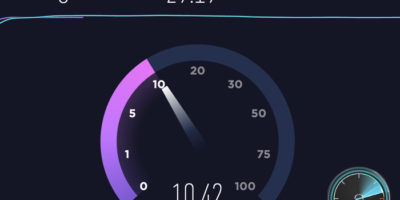Protecting your demat account from fraud is a priority for any investor. It is important to understand the risks associated with trading in the stock market and to take the necessary steps to protect your account. Fraudulent activities can include unauthorized transactions, identity theft, and manipulation of financial information. While some of these risks are outside of your control, there are steps you can take to protect your demat account from fraud. By taking a proactive approach to account security, you can help to protect your investment and ensure the security of your financial information.
What is a Demat account?
A Demat account is a type of account that offers investors a secure and convenient way to store their financial assets. It is a digital platform that allows individuals to store their shares, mutual funds, bonds, and other financial instruments in electronic format, eliminating the need to physically hold these assets.
Investors who opt for a Demat account can track, monitor and manage their assets with ease. The account also allows individuals to transfer their holdings without having to physically exchange them.
Demat accounts offer several advantages, such as quick settlement, easy transferability, and cost-effectiveness. However, these accounts are also vulnerable to fraud and cybercrime. It is important to take certain steps to protect your Demat account and assets from fraudsters.
These include using strong passwords, regularly updating your security settings, and avoiding clicking on suspicious links or giving out confidential information. Additionally, it is important to remain vigilant and monitor your Demat account for any unauthorized activity.
Types of Frauds in Demat Accounts
Demat accounts are essential for trading in the stock market. However, it is essential to make sure that the account is secure from any type of fraud. There are several types of fraud that people must be aware of in order to properly protect their demat account.
One type of fraud is identity theft, wherein someone is able to gain access to personal information which allows them to access the account. This type of fraud can be committed in a number of ways, such as by phishing, which is when someone sends out deceptive emails or messages in order to get someone to reveal their personal information.
Another type of fraud is account hijacking, where someone is able to gain access to an account without the knowledge of the account holder. This type of fraud can be done by using malicious software or by using stolen login credentials.
Additionally, there can be insider trading fraud, where someone uses insider information to their advantage to gain profits. The last type of fraud is market manipulation, where someone is able to manipulate the stock market prices to their benefit. It is important to be aware of these types of fraud and to take steps to protect your demat account from these threats.
How to Protect Your Demat Account from Frauds
One of the most important things you can do to protect your Demat account from fraud is to be aware of the latest threats and scams. It is important to keep an eye out for emails, texts, and other messages that appear to be from your Demat account provider but are actually from a third party.
These messages are often designed to fool you into providing sensitive information, such as your account details or passwords. Additionally, you should never click on any links or attachments in these messages, as they may lead to malicious websites or contain malicious software.
Be sure to contact your Demat account provider directly if you have any questions or concerns about any message that appears to be sent from them. Furthermore, you should always use a strong, unique password for your Demat account and never share it with anyone.
Best Practices for Protection
Protecting a Demat account from fraud is an important task for any investor. While the Demat account is a secure way to store investments, there are still risks involved. The best practice for protection is to ensure that all login credentials are kept secure and are not shared with anyone else.
Additionally, investors should keep track of their account activity on a regular basis and be aware of any suspicious activity. It is also important to enable two-factor authentication when logging in to the account, as this adds an extra layer of security.
Finally, it is essential to report any attempted fraud or suspicious activity to the appropriate authorities. Following these best practices can help ensure that a Demat account stays safe from fraud.
Immunity from Fraud
When it comes to protecting your demat account from fraud, immunity from fraud is an important factor to consider. Demat accounts are secure and have numerous safeguards to protect your investments.
The Demat account is registered with a depository participant, such as a bank or a broker, and the depository participant provides an extra layer of security. As a result, even if someone else gains access to your demat account, they cannot transfer securities without your permission.
Additionally, your demat account is protected by a two-factor authentication process that requires you to enter a one-time password to authorize a transaction. This helps to ensure that any unauthorized activity is stopped before it can occur.
Moreover, the depository participant also provides a transaction alert service that will notify you of any suspicious activity on your demat account. This extra layer of security will help you to stay informed and take action if necessary.
Ultimately, the immunity from fraud that comes with a Demat account will help to keep your investments safe and ensure that you are protected.
Regulatory Authority for Safety and Security
The Securities and Exchange Board of India (SEBI) is the regulatory authority for the safety and security of demat accounts in India. It has established rules and regulations to ensure the security of demat accounts and to protect investors from fraud.
These regulations include establishing a system of KYC (Know Your Customer) procedures, and the use of two-factor authentication for accessing demat accounts. Furthermore, SEBI has also established rules and regulations to ensure that demat accounts are regularly monitored and that any suspicious activity is reported to the concerned authorities.
SEBI also has the authority to impose penalties or other sanctions on entities that fail to comply with the regulations. By enforcing these regulations, investors can be assured that their demat accounts are secure and their investments are protected from fraud.
Conclusion
Protecting your Demat account from fraud is critical and requires diligence on your part. It is important to be aware of all the potential risks that can be associated with your Demat account, as well as the steps you can take to protect yourself from them. Regularly review your accounts and be sure to report any suspicious activity immediately.
Also, keep your account information up to date-and confidential. Finally, you should ensure that your Demat account is properly secured with two-factor authentication and other security measures. Taking these steps will help to ensure that your Demat account remains safe and secure.





















Comments